Chair's Message

These are turbulent times in forest management in BC. Internal factors, such as declining timber supply, and external factors, such as the softwood lumber agreement and commodity prices, are creating stresses for both the forest sector and communities that have not been seen since the 2009 recession. At the time of this newsletter, we are sensitive to the impact that mill closures are having on some communities. While this transition has been predicted for more than a decade, it remains difficult for all those affected.
With all of these changes going on, the Board is taking a hard look at the work we do and where we go into the future. We have been listening to feedback on our performance and evaluating where we can work differently to have greater impact and value. We received a great response to our strategic priorities survey, where we asked you for feedback on our work. Thank you to everyone who responded.
The result of our review will be a Strategic Plan that establishes priorities for the next three years. For the first time, our plan will be available to the public to increase transparency about what we do and how we do it.
Among several priorities, our Strategic Plan identifies three specific areas where we will focus additional effort in the coming years:
- Climate change impacts to forests;
- Tactical forest planning; and
- Effectiveness monitoring.
Our core focus will continue to be on-the-ground practices, but we will pay more attention to these higher-level issues that are so important to the future of our forests. The strategic plan will be published in August; please watch for an update when it is released. We welcome any comments or feedback you have on it.
The Board has recently released a Special Report “Tactical Forest Planning; the Missing Link Between Strategic and Operational Planning in BC,” which describes the changes the Board proposes for the second phase of reforms to the Forest and Range Practices Act. These recommendations build on the 2017 report “Opportunities to Improve the Forest and Range Practices Act”. The Board will continue to encourage the province to update legislation and program delivery to address gaps that we have seen in our investigations and special reports.
Strategic Planning
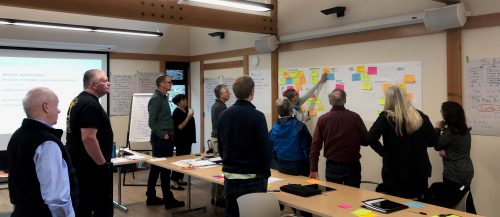
For the last six months, the Board has been focused on developing a new strategic plan to guide our work for the next three years. In February, the Board reviewed its mandate, mission, vision and guiding principles. In March, the Board met with representatives from government, the forest industry and the environmental community to hear their perspectives on the Board and where we should focus our efforts in the next few years.
In April, the Board met for two days at Brew Creek near Whistler to review current issues in forest and range management and to consider potential strategic priorities for the future. In May, the Board conducted an online survey to get public feedback on the Board’s work and future priorities. We received many responses to the survey, which gave us insight into what the public wants to see from us and helped focus discussions for a June meeting in Smithers where the Board confirmed and finalized the strategic plan.
Both the strategic plan and the survey results will be available on our website later this summer.
Field Trips
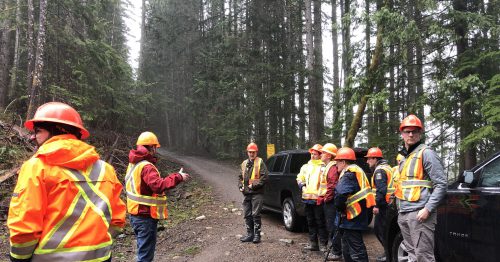
While the Board members were in Whistler and in Smithers, they took the opportunity to meet with ministry staff and other organizations and to go out into the field to look at forestry issues on the ground.
In April, the Board met with Ministry staff at FLNRORD in the Sea to Sky District. The Board listened to the current issues they are facing, in particular recreation management. The Board accompanied Ministry staff on a field trip to look at forestry interaction with recreation trails in the district, pictured above.
In June, the Board went on a field tour with FLNRORD District staff and Pacific Inland Resources in Smithers. We also met with Ministry staff involved in the Skeena Environmental Stewardship Initiative (ESI) and the Collaborative Stewardship Framework (CSF) with local First Nations.
Amendments to the Forest and Range Practices Act
In February, Forest Minister Doug Donaldson introduced amendments to the Forest and Range Practices Act (FRPA) into the legislature, which were then passed in March. These amendments addressed several past Board recommendations related to range practices, forest stewardship plans and management of visual quality.
Government is currently consulting with the public on a second round of changes, introduced in a discussion paper released in May. These changes are intended to increase the health and sustainability of BC’s forests and range lands, and aimed at increasing public confidence in government’s oversight of natural resource management in response to changing climate.
Our recent Tactical Forest Planning report recommends that government amend FRPA to require a new planning process to translate government’s broad strategic objectives and provide clear and tangible direction to operational planning by forest professionals: we call this tactical forest planning. The need for this type of planning is more critical now than at any time in the past, as forest resources are increasingly affected by the cumulative effects of multiple developments and natural disturbances due to climate change.
Projects We Are Working On
Follow-Up Special Investigation of Bridge and Wood Box Culvert Planning, Design and Construction
Follow-Up Special Investigation of Bridge and Wood Box Culvert Planning, Design and Construction
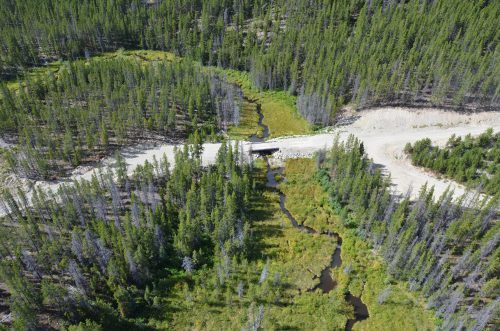
A March 2014 Board report identified key issues with the planning, design and construction of bridges at sites across the province. Since then, the Joint Practices Board of the Association of BC Forest Professionals and Engineers and Geoscientists BC have updated their guidelines for professional practice for crossing projects.
In this follow-up investigation, the Board is examining whether the changes made in response to our recommendations have resulted in the necessary improvements to compliance with FRPA across BC.
So far, the Board has completed fieldwork for the investigation in three natural resource districts: Skeena-Stikine, Sea to Sky, and Mackenzie. Over the summer, the Board will carry out fieldwork in two more districts: North Island – Central Coast and Selkirk. The results will then be analyzed and a report prepared for release next winter.
Assessment of FRPA to Conserve Fish Habitat in BC (Part 2)
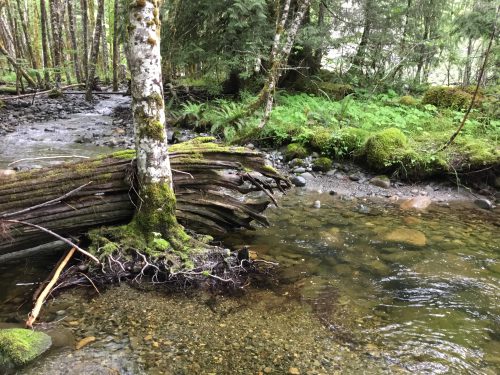
Forest and range practices can impact the quality and function of fish habitat, at both the site and watershed level. Despite protection requirements under FRPA, the Board has found issues surrounding fish habitat during its audits and investigations, and in response to public and First Nations concerns, initiated a two-part investigation into the protection of fish habitat under FRPA.
Part one, A Review of the BC Government Approach, published in July 2018, evaluated government’s approach to fish habitat conservation under FRPA and found a lack of clear objectives to managing cumulative effects of forestry activity in watersheds. The report identified potential weaknesses in the management framework.
Part two evaluates on-the-ground activities in protecting fish habitat, to see if issues found in part one are materializing. Part two consisted of field assessments in five watersheds across the province: Owen (Skeena), Memekay (West Coast), Pennask (Thompson-Okanagan), Horsefly (Cariboo) and Ainslie (South Coast).
The report is being finalized for publication in the fall.
Protection of Species-At-Risk Under FRPA: Northern Goshawk
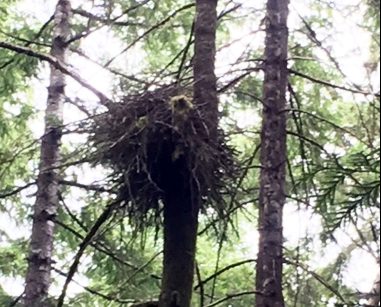
This special investigation is looking at how well FRPA protects species-at-risk habitats, using the Northern Goshawk as a case study. The Northern Goshawk is a keystone species that depends on mature forest structure, meaning impacts to goshawk habitat affect many other species. An investigation into this species-at-risk will demonstrate if protection mechanisms under FRPA are adequate for maintaining species-at-risk habitat.
The investigation is focusing on current forest practices and the history and current activities of both coastal and interior Northern Goshawk management through office analyses, interviews, and field visits.
Field work is complete and the report is being written for publication in the fall.
Other Projects
Work is also underway on our Reforestation in the Interior Douglas-fir Biogeoclimatic Zone special investigation and our Managing Forest Recreation Resources Values under FRPA special report.
Audits
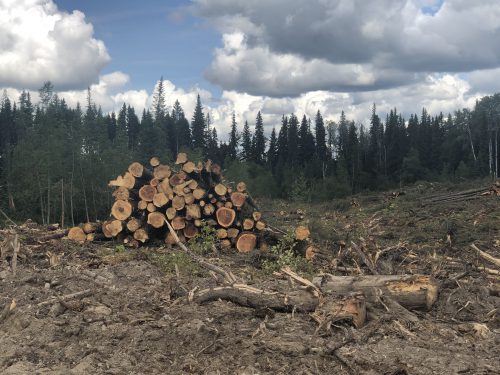 So far this season, the Board has completed field work for four audits:
So far this season, the Board has completed field work for four audits:
- Pacheedaht Anderson Timber Holdings Limited Partnership (TFL 61) near Port Renfrew
- BC Timber Sales (BCTS) operations and timber sale licence holders near Clearwater
- BCTS operations and timber sale licence holders near Quesnel
- Tolko Industries Ltd. Near Merritt
Upcoming Audits
The Board has fieldwork for several more audits scheduled before the end of the season. The next scheduled audit is Northern Engineered Wood Products’ forest licences near Burns Lake, the week of July 22.
Visit our WHAT WE ARE WORKING ON webpage for more information on upcoming audits.
Complaint Investigations
The Board is currently investigating 11 complaints from the public related to forest and range practices in BC, and has completed 5 complaints in the past six months. These complaint issues cover a range of topics: visuals, logging, forestry practices, old growth management, wildlife management, watershed management, drinking water management, public consultation, and First Nations consultation.
Ongoing Complaint Investigations
Vancouver Island Black Bear Dens
Board investigators are currently looking into a complaint made in April 2019 about the loss of black bear dens on Vancouver Island due to logging of old growth trees. The complainant asserts that black bear dens are not adequately protected in current forestry legislation, and as a result, black bear populations may be impacted. The investigation is ongoing and a report is expected within the next six months.
Bamfield Visual Quality Objectives
Board investigators are also looking into a November 2018 complaint about the preservation of visual quality objectives at Somerset Ridge near Bamfield. The complainant asserts that objectives to maintain visual quality were not met, despite an investigation by FLNRORD’s Compliance and Enforcement Branch that concluded they were. Our investigation is ongoing.
Forest Appeals Commission Issues Decision on the Lemare Lake Appeal
In May 2018, the Board joined an appeal brought by Lemare Lake Logging Ltd. concerning a contravention determination related to bridge maintenance and safety. The district manager found that Lemare contravened the requirement to ensure that a bridge was structurally sound and safe for use due to rotten guard rails, and that Lemare failed to comply with bridge load limit restrictions and a stop work order. However, the district manager decided he could not levy a penalty for contravening the bridge maintenance requirement due to expiry of the three-year limitation period. Lemare appealed on the grounds that there should be no contravention because guard rails are not a structural component of a bridge, and that the administrative penalty of $20,000 for the other contravention was too high.
The Board joined the appeal to argue that the district manager erred in determining that the limitation period had expired, and therefore was entitled to levy an additional penalty for the bridge maintenance contravention. The hearing was held in Port Hardy in March 2019, and the Commission’s decision was delivered in June.
The Commission agreed with the Board, stating that the three-year limitation period for the road maintenance contravention had not expired. Lemare’s appeal was dismissed.
Responses to Board Recommendations
Timber Salvage Harvesting and Fisher Management in the Nazko Area
Timber Salvage Harvesting and Fisher Management in the Nazko Area
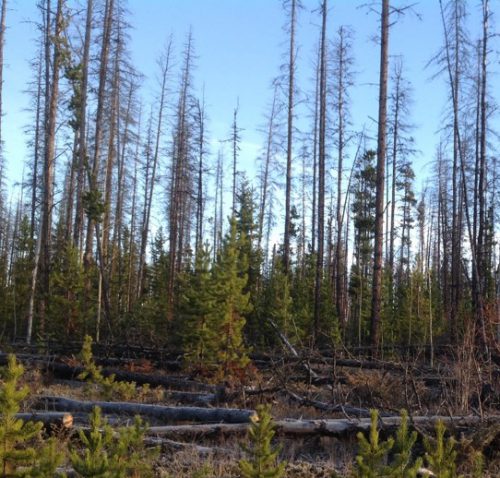
In May, the Board received a response to our recommendations regarding fisher habitat and salvage logging in the Nazko area. The Board recommended that government ensure coordinated, landscape-level planning of harvest and retention areas is done when major salvage logging is required. It also recommended that government use the Government Actions Regulation (GAR) to protect the fisher’s remaining habitat and help restore populations. Government accepted the Board’s recommendations, and noted that it is currently looking at changes to forest planning under FRPA that will enhance the ability to ensure coordinated landscape-level planning occurs in future. Government does not currently intend to use the GAR to protect fisher habitat, but described a number of other initiatives currently being implemented to protect and restore fisher habitat in the Cariboo region. The Board is currently reviewing the response and it will be posted on the our website when it is completed.
Upcoming Events
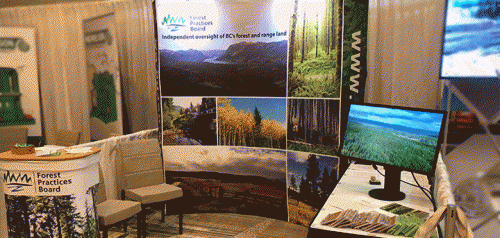
Find us at these events in the next several months:
- Northern Silviculture Committee (NSC) Fall Field Tour
September 2019 - Union of BC Municipalities (UBCM) Convention in Vancouver
September 23-27, 2019 - Southern Interior Silviculture Committee (SISCO) Fall Field Tour in Summerland/Kelowna Area
September 24-26, 2019 - Union of British Columbia Indian Chiefs (UBCIC) AGM
October 2019 - Federation of BC Woodlots AGM & Conference in Smithers
October 6-7
People
Welcome Gerry to the Forest Practices Board!
Welcome Gerry to the Forest Practices Board!
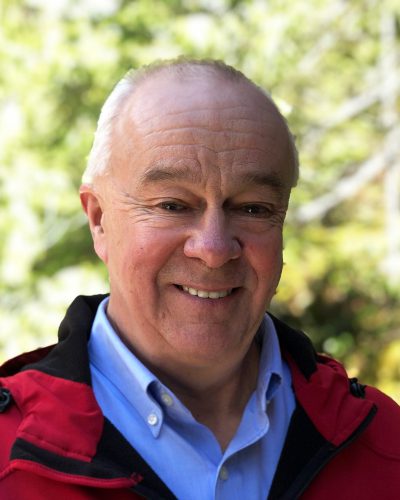
On March 31, 2019, the Board welcomed Gerry Grant, RPF, as a part-time board member. Gerry brings over thirty years of experience in forestry to the Board, having served as District Manager for the Ministry of Forests in both the Chilcotin and Quesnel Districts during his career. Since retiring from government, Gerry has been consulting for a bioenergy company and a First Nation partnership, and has been working to increase First Nations involvement in the forest sector. The Board is excited to have Gerry as part of our team.
Good Luck Hannah on Her Exciting Temporary Assignment with FLNRORD
Hannah Horn, Manager of Special Investigations is going on a temporary assignment (TA) with the Ministry of FLNRORD until February 2020. Hannah will be the Acting Manager of Cumulative Effects and Integrated Monitoring, providing strategic oversight of the provincial Cumulative Effects and Forest and Range Evaluation Programs.
 Welcome to our Summer Co-op Student, Meghan Flood
Welcome to our Summer Co-op Student, Meghan Flood
The Board also welcomes our Communications Co-op Student Meghan Flood, a Geography and Professional Communications student at the University of Victoria, to the Board this summer. Meghan is assisting with a range of Board communications during her term, such as social media and preparation of the upcoming 2018/19 Annual Report.


